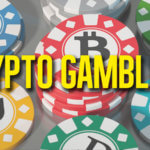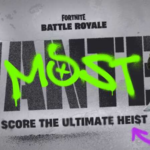Published on: 17/02/2023
Words with Friends developer showcases Web3-based NFT game Wildcard
Paul Bettner, the creator of the popular mobile game Words with Friends, has revealed his upcoming NFT game, Wildcard. In a blog post on February 16, Bettner said the game would integrate Web3 using the Polygon network.
Per the preview, Wildcard is a real-time strategy, multiplayer online battle arena (MOBA) game with virtual NFT cards. Developed by Playful Studios, the game’s first public test is scheduled to release on February 23. After five years of development, the game is set to release with its first event, “Melee on the Meteor.”
Playful Studio is experienced in balancing many different game elements. With popular titles like Lucky’s Tale and Creativerse in its portfolio, the team is known for flexibility and creativity. Bettner himself is most well-known for his hit game Words with Friends, developed on mobile with over 10 million downloads on Google Playstore.
In 2022, Bettner’s Playful Studio raised $46 million to finish the game, with established crypto technology firms like Paradigm and Griffin Gaming Partners assisting in the game’s funding.
The Melee on the meteor is coming.
It’s Wildcard’s first exhibition, and if you’re not there? Well, Sister, you’re going to miss it.
Here’s my personal recommendation… DON’T!
2.23.23#Wildcard #MOBA #Web3 pic.twitter.com/jl9lpJAYQ2
— WILDCARD (@PlayWildcard) February 10, 2023
Web3 and NFT implementation
The game’s concept revolves around not only playing against other players but also being able to watch players fight each other in a stadium. Bettner emphasized the importance of a “live audience of fans and spectators” cheering the competitors, enhancing the gaming experience.
This, the most crucial aspect of the game’s design, according to Bettner, was inspired by the rise of let’s-play watchers and backseat gamers.
“I became fascinated by something I saw happening in our game communities. A new type of “player” had begun to emerge: this player was watching people play as much as they were playing themselves,” Bettner said.
“Others saw this as an opportunity adjacent to our industry. I saw the birth of a brand new platform for games.”
Web3’s decentralized and open-access concept is also vital to the game’s development. Bettner dubbed the emerging blockchain technology the “missing piece” that would allow his game’s competitive space to be hosted by a platform owned by the future Wildcard community.
“It is fantasy sports, college athletics, and pro leagues all rolled into one, played online, minted on the blockchain, and owned by the community,” Bettner said.
While anticipation is building for the game’s future, many worries surround its NFT-centered nature. However, Bettner reassured players that while it utilizes virtual NFT cards, the development cycle didn’t consider any pay-to-win elements related to purchasing those cards.
“Our game is about collecting, and you use your collection to play. That’s what provides for us the ability to have a game that both have valuable, collectible cards but it isn’t pay-to-win,” he said.
Despite some qualms about the game’s NFT implementation, the technology plays an important role in developing Bettner’s vision. The creator was once a crypto skeptic, but he now believes NFT and blockchain technology will be able to surpass many limitations suffered by Web2 platforms.
Bettner described platforms like Twitch and YouTube as limited due to their need to profit from audience engagement. YouTubers and Twitch streamers often have to remind their audience to engage with their content through likes and subscriptions rather than allowing them to enjoy the spectating experience the way sports watchers do in a stadium.
With Web3 technology, viewers will be able to spectate in Wildcard’s games and cheer on the players as they please without being limited by the platform. He hopes the integration of Web3 through Polygon’s Ethereum-scaling network will be able to create the immersive spectating environment he imagined for the future.



